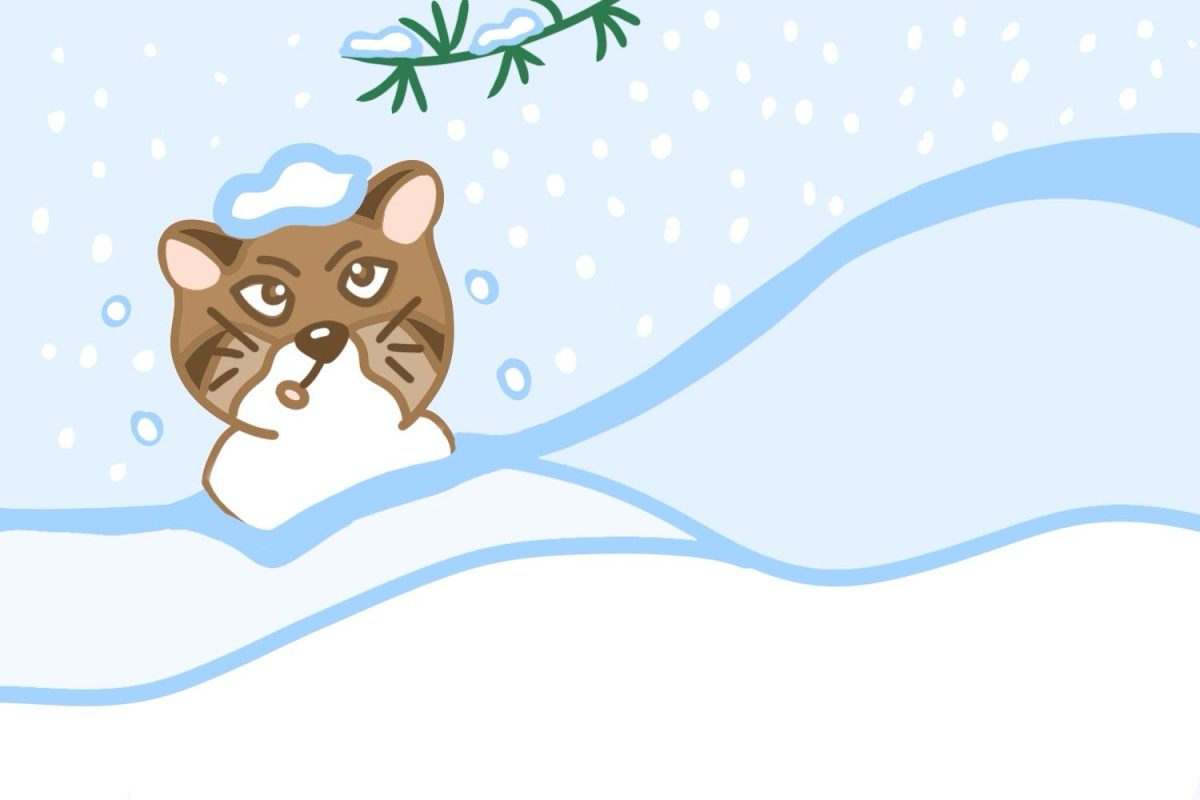Snow days, especially in Vermont, should be a seasonal norm for reasons of accessibility, safety and environmentalism.
Despite various periods of intense snowfall and bitter cold, I have never experienced a UVM snow day, even when last year’s wind chill reached temperatures of negative 45 degrees, according to a Jan. 14 2022 article from The Cynic.
Going to class on these days means dangerous treks balancing on black ice, with exposed skin blistering from frosted winds.
This is with the privilege of being able-bodied.
Students and individuals with mobility issues experience even more severe difficulties and injury risk in winter weather, according to a Feb. 22, 2019 Minneapolis’ Star Tribune article.
Commuting through vehicular means is no safer, as nearly 40% of weather-related accidents occur due to snow, ice and slush, according to the Federal Highway Administration.
These accidents lead to 2,200 deaths and almost 200,000 injuries annually, according to the Federal Highway Administration.
From the perspective of accessibility and safety, much of this could be mitigated with extensive snow plowing and salting.
Salting works by lowering the freezing point of water, meaning that a colder temperature is required for liquid water to become solid ice, according to a Dec. 11, 2018 article from Columbia Climate School.
Unfortunately, salting has many drawbacks.
On the ecological and environmental front, salting can contaminate water sources, endanger certain fish and amphibian species and damage roadside plants, according to the Environmental Protection Agency.
Sadly, even Lake Champlain is seeing its concentrations of chloride grow due to road oversalting, according to the Lake Champlain Sea Grant Institute.
Salting is also correlated with negative health consequences in humans and damages cars through corrosion, according to the Environmental Protection Agency.
UVM has a reputation for sustainability and environmentalism, which should continue even when it means students have to miss in-person class.
Sand and gravel are often listed as viable alternatives to salting, but their advantages in road traction come with inefficacy at certain speeds, vehicle damage and expensive cleaning demands, according to UNH’s Technology Transfer Center.
Introducing snowdays would protect Lake Champlain’s aquatic and plant life, as well as Burlington’s groundwater from the effects of oversalting.
Snow days would not only be good for environmental reasons, it would also mean less damage to our cars and health.
Finally, the establishment of snow days would expand upon the insights gained from the COVID-19 pandemic: online learning is a viable option.
This trend can be seen in high schools as well, with 39% of schools employing these online learning days, and 32% of them considering it, according to a Jan. 20, 2023, EducationWeekly Survey.
In the case of high school students, adults should respect the sanctity of childhood and adolescence, and keep the relief of a snow day for that reason.
But for university students, snow days don’t have to be a period of respite, as online alternatives should always be preferred to outright class cancellation.
This would even benefit UVM staff, who would not have to risk a dangerous commute to UVM, and could instead exercise online options from the comfort of their own home.
We shouldn’t go another winter trudging to class in negative temperatures with dangerous wind chills, especially when we live in an era where university students are all but required to have laptops and internet connection.
So, when it’s scary-cold outside, UVM faculty should move classes online and stop oversalting, so that both the students and environment will benefit.













